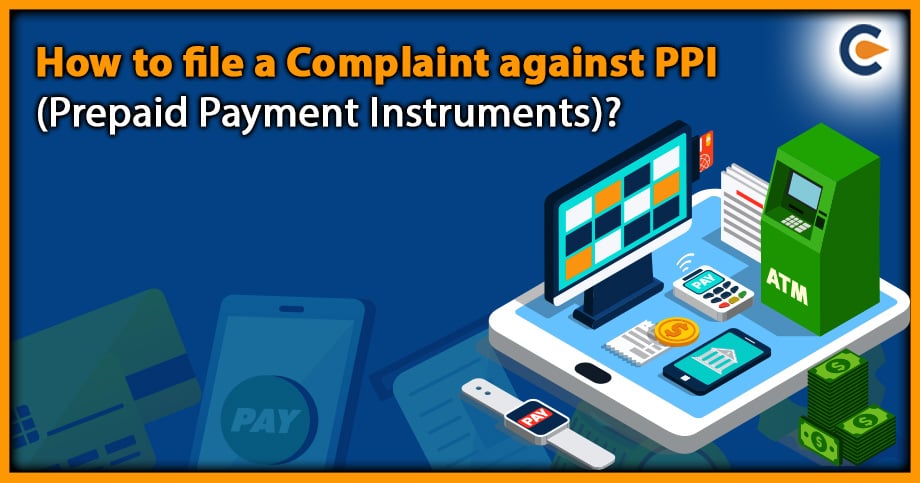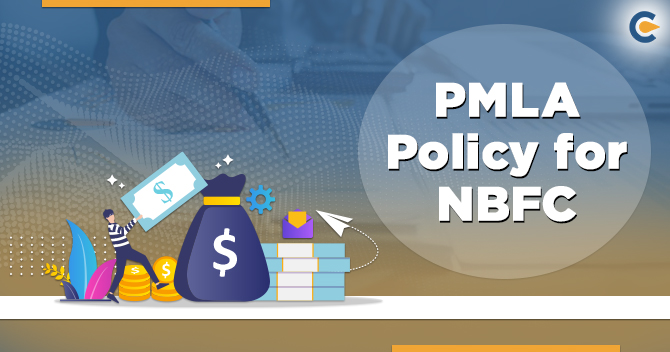Prepaid Payment Instruments (PPIs) are a popular way of making digital payments, as they offer a convenient and secure alternative to carrying cash. PPIs include various types of digital wallets, prepaid cards, and mobile payment apps that can be used to make payments online and offline. But if you use a PPI, you might run into problems like unauthorized transactions, long wait times for refunds, or bad customer service. In such cases, you may want to file a complaint against the PPI provider. In this blog, we will discuss step-by-step how to file a complaint against Prepaid Payment Instruments.
Define PPI
PPI stands for Prepaid Payment Instrument. It is a digital payment instrument that facilitates the purchase of goods and services, including financial services, without the need for cash or a physical card. PPIs include various types of digital wallets, prepaid cards, and mobile payment apps that can be used to make payments online and offline. They are convenient and secure, offering an alternative to carrying cash or physical cards. PPIs are regulated by the Reserve Bank of India (RBI) under the Payment and Settlement Systems Act, 2007.
Step-By-Step Guide to File a Complaint against PPI
Contact Customer Care
The first step is to contact the customer care department of the PPI provider. Most PPI providers have a dedicated customer care helpline or email support. You can find the contact details on the PPI provider’s website or mobile app. explain your issue and provide all the necessary details, such as transaction ID, date and time of transaction, amount, etc. If the customer care team is able to resolve your issue, your complaint will be resolved quickly.
Escalate to Grievance Redressal Officer
If your issue is not resolved by customer care, you can escalate it to the Grievance Redressal Officer (GRO) of the PPI provider. Every PPI provider is required to have a designated GRO to handle customer complaints. You can find the contact details of the GRO on the PPI provider’s website or mobile app. write a formal email or letter to the GRO, explaining your issue and attaching all the relevant documents. The GRO will investigate your complaint and provide a resolution within a specific time frame.
Contact the Ombudsman
If your issue is still not resolved, you can approach the Ombudsman appointed by the Reserve Bank of India (RBI). The RBI has appointed an Ombudsman for Digital Transactions to handle complaints related to PPIs. You can file a complaint online on the RBI’s website or by sending a written complaint to the Ombudsman. The Ombudsman will investigate your complaint and provide a resolution within a specific time frame.
File a Complaint with RBI
If you are not satisfied with the resolution provided by the Ombudsman, you can file a complaint with the RBI’s Consumer Education and Protection Department. You can file a complaint online on the RBI’s website or by sending a written complaint to the RBI. The RBI will investigate your complaint and take appropriate action against the PPI provider if necessary.
Payment and Settlement Systems Act, 2007
The Payment and Settlement Systems Act, 2007[1] is an Indian law that provides for the regulation and supervision of payment systems in the country. The Indian Parliament passed the act, and it went into effect on August 12, 2008.The main goal of the act is to make sure that payment and settlement systems are safe, efficient, and reliable.
The act defines payment systems as systems that enable payment transactions, including fund transfers, payment transactions, and settlement transactions. The act provides for the establishment of the Payment and Settlement Systems Board (PSSB) by the Reserve Bank of India (RBI). The PSSB is responsible for the formulation and implementation of policies for the regulation and supervision of payment and settlement systems.
The act empowers the RBI to regulate and supervise payment systems in India. The RBI can issue directions and guidelines to payment system operators (PSOs) to ensure compliance with the regulatory framework. The RBI can also conduct inspections and audits of PSOs to monitor their compliance with the regulatory framework.
The act regulates many types of payment systems, such as those that use cards, electronic funds transfers, and mobile payments. The act also provides for the regulation of non-bank payment system operators, such as payment aggregators, payment gateways, and issuers of prepaid payment instruments.
Regulatory Framework
The regulatory framework for Prepaid Payment Instruments (PPIs) in India is governed by the Reserve Bank of India (RBI) under the Payment and Settlement Systems Act, 2007. Here are the provisions regulating PPIs:
Issuance of PPIs:
- PPIs can be issued by banks; non-banking financial companies (NBFCs), payment system operators (PSOs), and other entities approved by the RBI.
KYC Norms:
- PPI issuers are required to comply with the KYC norms prescribed by the RBI. They need to verify the identity of the customers and maintain records of the transactions as per the guidelines.
Types of PPIs:
- The RBI has prescribed the following types of PPIs: (a) Closed System PPIs, (b) Semi-closed System PPIs, and (c) Open System PPIs. The different types of PPIs have different usage restrictions, transaction limits, and KYC requirements.
Transaction Limits:
- PPIs have transaction limits, which are prescribed by the RBI from time to time. These limits include per transaction limit, daily transaction limit, and monthly transaction limit.
Interoperability:
- PPIs are required to be interoperable, which means that customers should be able to transfer funds from one PPI to another PPI issued by a different issuer. The RBI has issued guidelines on interoperability of PPIs to ensure seamless transactions.
Security Measures:
- PPI issuers are required to implement robust security measures to protect the customers’ funds and prevent fraud. The RBI has issued guidelines on security and risk mitigation measures for PPI issuers.
Grievance Redressal:
- PPI issuers are required to have a grievance redressal mechanism to address customer complaints. The RBI has issued guidelines on the customer grievance redressal mechanism for PPI issuers.
Reporting Requirements:
- PPI issuers are required to submit periodic reports to the RBI on the number and value of transactions, KYC compliance, and other regulatory requirements.
Audit and Inspection:
- The RBI has the power to conduct audits and inspections of PPI issuers to ensure compliance with the regulatory framework.
Conclusion
In conclusion, filing a complaint against a Prepaid Payment Instrument is a straightforward process, but it requires patience and persistence. You should first try to resolve the issue with the PPI provider’s customer care and then escalate it to the Grievance Redressal Officer if required. If your complaint is still not resolved, you can approach the Ombudsman appointed by the RBI or file a complaint with the RBI’s Consumer Education and Protection Department. By following these steps, you can ensure that your complaint is heard and resolved in a timely manner.
Read Our Article: Documents Of Payment Gateway License In India











